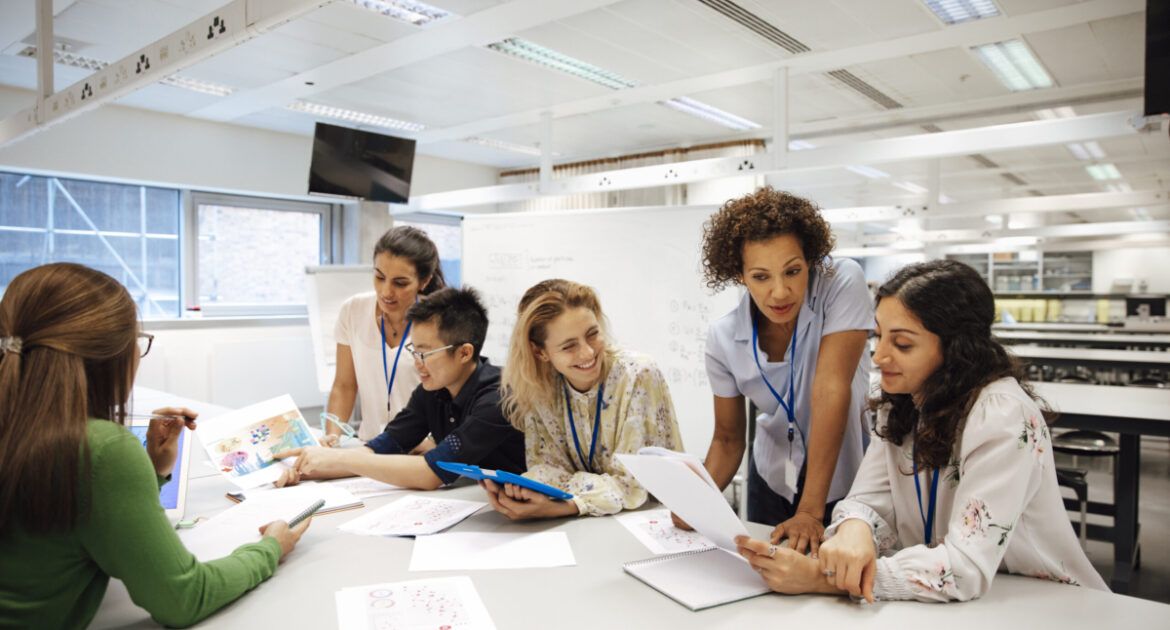An inclusive work culture is supportive, collaborative and inspiring. In an inclusive environment, people see diversity as a form of strength. They celebrate individual differences in academic, cultural and professional backgrounds and respect different ways of looking at challenges. An inclusive culture celebrates individual effort and steers away from promoting a perfectionist approach. Enabling individuals to learn from both successes and so-called ‘mistakes’ is at the heart of inclusion.
Academic research is a fascinating professional area. You can contribute to groundbreaking research, publish in academic journals and make new scientific discoveries. Academics often attend overseas conferences and enjoy exchanging views with other scholars. Academia brings together knowledgeable, talented and intellectually curious people who are passionate about their field.
Challenges in research
The Postgraduate Research Experience Survey (PRES) 2021 identifies the views of approximately 40,000 postgraduate researchers from 94 institutions. The research has found that the overall satisfaction within the sector has fallen below 80% in 2021. The area of professional development suffered the largest decrease in satisfaction as fewer researchers have been able to develop their networks and take part in professional development initiatives. The above report found that mental or emotional health problems are the most common reason for leaving a postgraduate research degree.
Apart from pressures to produce an increasing amount of research outputs, researchers may face various challenges such as limited careers support, social anxiety and working in isolation. Support for mental health and wellbeing needs to be a strong priority for academic institutions.
What is impostor syndrome?
The Cambridge Dictionary gives the following definition: ‘The feeling that your achievements are not real or that you do not deserve praise or success.’
Impostor syndrome can be defined as the fear of being ‘found out’. An individual believes that they do not deserve their achievements and they fear being exposed. They are plagued by self-doubt, anxiety and not being good enough. Most people do not talk about their feelings of inadequacy and are reluctant to ask for help. It can impact not only early career researchers but more experienced scholars as well. Typically, it occurs amongst high-achieving individuals (such as those working in academia) who view themselves less capable than others.
Dr Jessica Taylor, who is a chartered psychologist and author says that “…impostor syndrome is ‘more common’ in successful women than in successful men because society is more likely to tear down women who become too opinionated, intelligent, educated or assertive”.
How to support researchers
Universities and academic institutions can provide a series of individual counselling and coaching sessions to staff members. Cognitive Behavioural Therapy (CBT) can help with handling imposter syndrome. Through CBT techniques, we learn to see ourselves and the people around us in a more positive light. Therapists can teach us to challenge negative beliefs and critical self-talk, as well as develop a more rational mindset. Counselling can help us become more self-aware and realise when our negative feelings arise. The more we learn about them and realise what triggers them, the more skilfully we will be able to replace them with logical and rational thoughts.
Individual coaching: This can be a powerful way to overcome feelings of inadequacy. In the coaching conversations, people can become more aware of their strengths and create a plan to cope. When people can express their self-doubt in an emotionally safe environment, they are often able to shift their perspective. A supportive and skilled coach can provide a non-judgemental environment and help individuals to thrive.
Social events, conferences, networking and speaker events: Social events can help with breaking down barriers between people and encourage researchers to engage with each other more. Informal conversations can lead to new collaborations and friendships, and help staff members to feel more connected. When individuals learn more about each other outside the life of academia, it can result in more informal support and mutually beneficial work relationships.
Learning: Harvard Business Review has recently found that a learning-oriented work culture can promote an inclusive environment. Collaboration, trust, communication and development opportunities can enable a culture which supports academics and researchers. Professional courses and training events for employees can focus on developing both technical and soft skills, as well as provide knowledge-sharing opportunities.
Management/ leadership: The most effective managers in academia are strongly self-aware and conscious of the words they use when providing feedback. They are able to tailor their management approach to the individual by based on the individual’s needs and context. Their management style is supportive, encouraging and empowering. Managers and leaders in academia need to be aware that a large number of early career and mature researchers may struggle with impostor syndrome from time to time. When a researcher trusts their manager and they have a supportive relationship, it is easier to overcome self-doubt. A positive work relationship with one’s manager can help with being more engaged and feeling part of the organisation.
Recognition: Formal leaders are easy to recognise. They may have the relevant job title (e.g. head of department), decision-making power, and authority. Informal leaders may not have any of the above however they do influence from behind the scenes. Informal leaders show an outstanding work ethic and genuine passion for their work. They counsel others and have a large number of positive work relationships. Their colleagues often approach them for advice because they trust their knowledge and expertise. Informal leaders show leadership by delivering high-quality work, getting the best out of colleagues and by challenging people to do more.
Many researchers in academia are informal leaders. They can be hard to find and are not always the people you would expect. Their work needs to be recognised and acknowledged, as opposed to taking for granted.
Informal leaders do not normally realise they are doing anything particularly special. In fact, many of them may struggle with self-doubt. When informal leaders are acknowledged, it can help them with overcoming impostor syndrome and to feel a valuable part of the organisation.


Points is very helpful to improve skill. Thank you